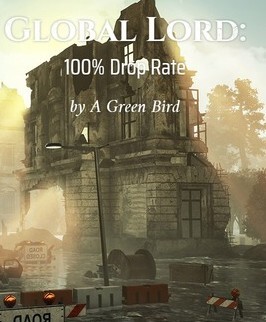Chapter 712 Luck
In fact, the Soviet army sent much more fighter planes than the German army imagined. They almost sent out all the fighter planes of the two aviation divisions.
said "almost" because only one brigade of 10 fighter planes was left as a reserve.
Alexey objected to Shulka's suggestion.
"We have an attack aircraft pilot, Comrade Shulka!" Alexey said: "The attack aircraft pilot does not have much advantage in the air, in fact... it usually can only be passively attacked!"
Originally, attack aircraft were mainly used for ground attack, and the Soviet pilots lacked combat experience, so it was indeed only used for "passive attack" in air combat.
but…
"This time is different, Alexei!" Shulka said: "The Germans are targeting our tanks and ground troops, so they will send more attack aircraft, that is, their fleet is mainly attack aircraft, Supplemented by fighter planes for cover! If possible, I also hope that we can ambush the enemy with fighter planes of two aviation divisions, but now we only have one fighter plane division and one attack plane division. If we only send one fighter plane division, we will not be able to deal with the The enemy fighter force has formed an absolute numerical advantage!"
"You mean..." Alexey said: "We use attack planes against enemy attack planes, and fighter planes against enemy fighter planes?"
"Yes!" Shulka replied: "And both have an absolute numerical advantage over the enemy!"
Alexey was silent for a while, then agreed to Shulka's plan and reported it to the higher authorities.
Major General Samlov, the commander of the 2nd Air Corps, was also very surprised when he heard about this plan. What he didn't expect was that Shulka would come out in full force during the first battle.
One aviation division of the Soviet Army has about 60 fighters, two aviation divisions have 120 fighters, and after deducting a brigade as a reserve team, there are 110 fighters. This scale is a big battle. (Note: The Soviet Air Force has a smaller establishment than the German Army, and an air brigade has only 10 aircraft instead of 30)
"If..." Major General Samlov asked with some concern: "The Germans used more fighter planes than we imagined, then these two aviation divisions may never return!"
"We are the ambush side, Comrade General!" Shulka replied: "We can know the number of enemy planes from the radar, or if we know that the strength of the enemy planes is beyond our control, we can choose to retreat!"
Radar during this period was unreliable, especially in rainy weather, which was one of the reasons why it was difficult for the Germans to detect the ambushes of Soviet fighter planes.
Major General Samlov did not speak. He was a little worried that this was the wrong move of Shulka, who did not understand air combat... because air combat is not as simple as outsiders imagined. Send some fighters to lure the enemy out of ambush while the other waits in the clouds.
If the Soviet fighter planes come out in full force, the German fighter planes waiting in the dark will immediately join the battle group.
When the time comes, it will be too late for the Soviet fighter planes to withdraw.
In this situation, if there is any way to save it, it is to prepare enough reserves to invest or cover the retreat of the main force, but Shulka only used a large group of fighters as the reserve team.
What can a brigade and 10 fighter planes do?
"I have only one question, Comrade Shulka!" Major General Samlov asked: "How are you going to use your reserves?"
"Actually, they're not even a reserve, Comrade General!" Shulka replied: "I use them to pursue scattered enemy fighters!"
Samlov was speechless for a moment. This Shulka didn't consider the situation of defeat at all, but only the situation of victory.
"Why are you so confident!" Samlov asked: "I mean, are you sure the Germans will be fooled?"
"I'm not sure, Comrade General!" Shulka replied: "I'm just trying my luck!"
Samlov almost fainted when he heard the words, more than a hundred planes, luck?
Samlov did not support Shulka's approach, but because of Khrushchev's order, he finally chose to follow Shulka's plan.
Khrushchev's order was very straightforward: "Either you give the order, or I let someone else give the order!"
Samlov certainly knows what this means... You must know that his 2nd Aviation Army has two aviation divisions, and each aviation division has a set of command systems. It is enough to just promote one of the division commanders to commander to replace him.
Actually, Shulka is not entirely by luck.
On the one hand, Shulka believes that the German fighters have been weak since the battle, at least in terms of numbers. The number of German fighters has never been dominant.
On the other hand, it was Shulka who knew that this was the time when Goering was preparing to use air transport to meet the supply needs of the trapped German Sixth Group.
Thus, Goering needs a large number of transport planes, in addition to saving a large amount of aviation fuel, and at the same time needs to organize a large number of fighter planes... transport planes need the protection of fighter planes.
Shulka even knew that because of the serious shortage of transport planes, Goering even ordered the use of bombers as transport planes to transport supplies for the Sixth Army.
Then, in this case, it is unlikely that the German army would send a group of fighter planes as bait as Samlov worried, and hide a large number of fighter planes in the dark waiting for the Soviet army to take the bait.
Of course, the battlefield has never been able to determine what the enemy is like, so there is still an element of luck.
Shulka won the bet, because the German army did not have such a "plan in the middle". In addition to the lack of German fighter planes, another reason is to underestimate the enemy... The German army believes that a large group of fighter planes is fully capable of repelling any incoming enemy , after all, enemy pilots are "tender cabbage".
But that's not the case.
A fighter aviation division of the Soviet army swooped down on the German fighter brigade... 70 vs. 30, more than twice the number advantage, the air was immediately filled with the roar of aircraft engines and the roar of machine guns like torn cloth, and then It was a fighter plane falling from the sky with black smoke.
On the other hand, the German "Henschel" fleet obeyed the order and turned around.
To a certain extent, the fighter group commanded by William did not abandon the attack aircraft group, but used itself to drag the enemy fighter group so that the B group could escape.
The idea is good, but the reality is cruel.
Before the German B fleet flew far, fighter planes swooped down from the air and charged into the German fleet... It was another fighter plane of an aviation division.
What's more important is to be prepared and not to be prepared. A dive down immediately knocked down more than a dozen German attack planes.
(end of this chapter)







